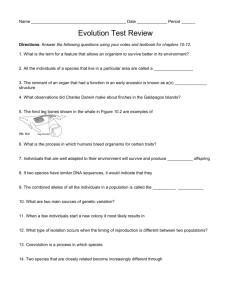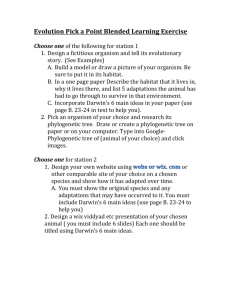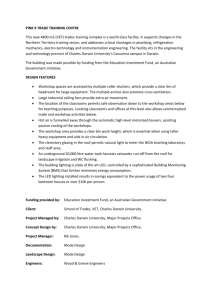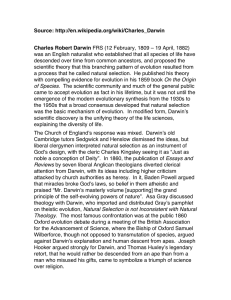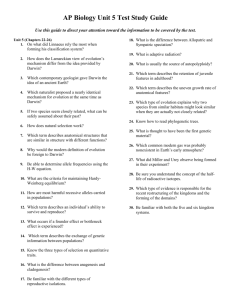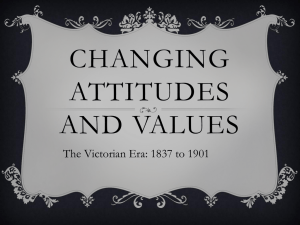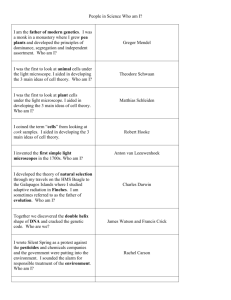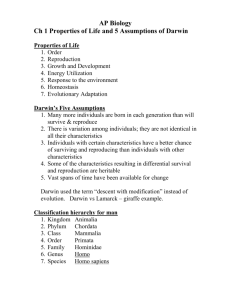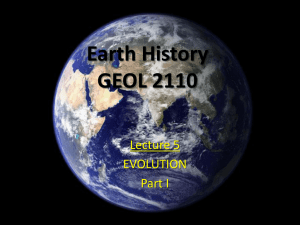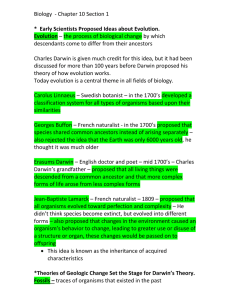Introduction to Evolution
advertisement
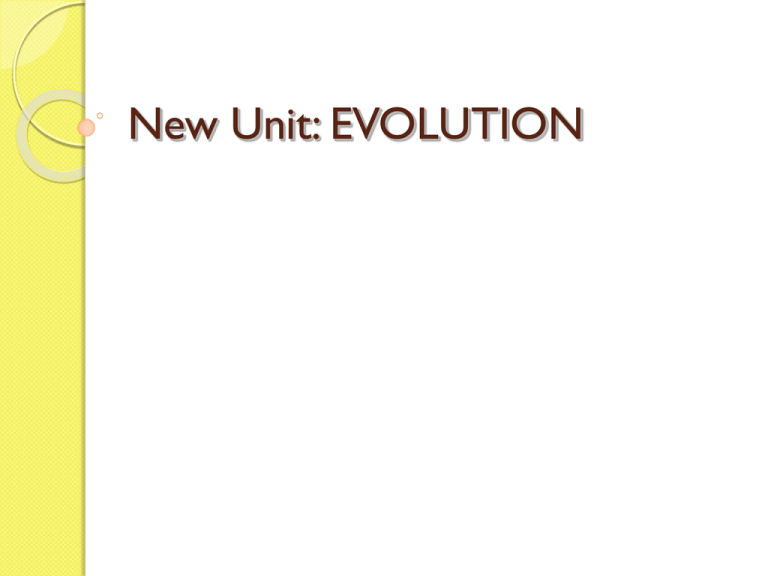
New Unit: EVOLUTION EVOLUTION Evolution is not a belief system. It is a scientific concept. It has no role in defining religion or religious beliefs Evolution is a theory How Evolution is Defined “Evolution: The gradual process by which the present diversity of plant and animal life arose from the earliest and most primitive organisms, which is believed to have been continuing for the past 3000 million years." -Oxford Concise Science Dictionary "evolution: ...the development of a species, organism, or organ from its original or primitive state to its present or specialized state; phylogeny or ontogeny" - Webster's "evolution: ...the doctrine according to which higher forms of life have gradually arisen out of lower." - Chambers The definition I like and one that is basic!! “…evolution can be precisely defined as any change in the frequency of alleles within a gene pool from one generation to the next." What this definition means is.... Evolution is a change in the number of times specific genes that code for specific characteristics occur within an interbreeding population There is no implied “improvement” in evolution History of Evolutionary Thought 1707-1788: Buffon that creation provided only a few small number of species that evolved through natural processes 1807-1873: Agassiz thought that new creation arouse after each catastrophe 1726-1797: Hutton Developed Uniformitarianism in which slow natural processes shape the Earth (eg. a small stream could carve a valley) 1744-1829: Lamarck inheritance of acquired characteristics (eg. an organism passes on characteristics that it acquired over its life time) ◦Giraffes got their long necks as a result of needing to stretch and reach trees for food CHARLES DARWIN: 1809-1882: Charles Darwin was born on February 12, 1809 in Shrewsbury, England. He observed much variation in related or similar species of plants and animals that were geographically isolated from each other. (Patterns in Diversity) He basically sailed around the world and surveyed little known coastal areas These observations were the basis for his ideas. Contrary to popular belief, Darwin was not the first person to describe the concept of evolution, but he was the one who gave it its driving force. “I have called this principle, by which each slight variation, if useful, is preserved, by the term Natural Selection.” —Charles Darwin from "The Origin of Species“, 1859 Darwin develops his Theory: Natural Selection: the process by which certain heritable traits, those that make it more likely for an organism to survive and successfully reproduce—become more common in a population over successive generations. It is a key mechanism of evolution! We will look at some example cases Pepper moth lab simulation http://www.techapps.net/interactives/pepp erMoths.swf HOMEWORK READ p. 296-302 Do p. 299 #1, 3, 5, 6 Word Wall Define: Extint Adaptation Mimicry Variations Mutations Selective advantage
